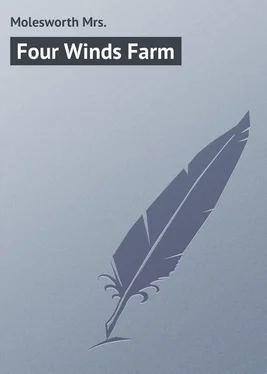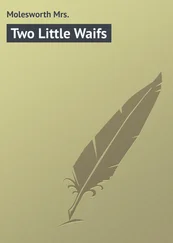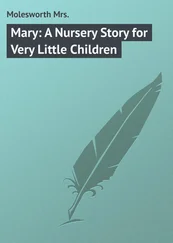Mrs. Molesworth - Four Winds Farm
Здесь есть возможность читать онлайн «Mrs. Molesworth - Four Winds Farm» — ознакомительный отрывок электронной книги совершенно бесплатно, а после прочтения отрывка купить полную версию. В некоторых случаях можно слушать аудио, скачать через торрент в формате fb2 и присутствует краткое содержание. Жанр: foreign_prose, на английском языке. Описание произведения, (предисловие) а так же отзывы посетителей доступны на портале библиотеки ЛибКат.
- Название:Four Winds Farm
- Автор:
- Жанр:
- Год:неизвестен
- ISBN:нет данных
- Рейтинг книги:5 / 5. Голосов: 1
-
Избранное:Добавить в избранное
- Отзывы:
-
Ваша оценка:
- 100
- 1
- 2
- 3
- 4
- 5
Four Winds Farm: краткое содержание, описание и аннотация
Предлагаем к чтению аннотацию, описание, краткое содержание или предисловие (зависит от того, что написал сам автор книги «Four Winds Farm»). Если вы не нашли необходимую информацию о книге — напишите в комментариях, мы постараемся отыскать её.
Four Winds Farm — читать онлайн ознакомительный отрывок
Ниже представлен текст книги, разбитый по страницам. Система сохранения места последней прочитанной страницы, позволяет с удобством читать онлайн бесплатно книгу «Four Winds Farm», без необходимости каждый раз заново искать на чём Вы остановились. Поставьте закладку, и сможете в любой момент перейти на страницу, на которой закончили чтение.
Интервал:
Закладка:
It was always fresh up at Four Winds Farm, but to-day there was a particularly brisk and inspiriting feeling in the air; and as Gratian ran down the bit of steep hill between the gate and the road which he partially followed to school, he laughed to himself as a little wind came kissing him on the cheek.
"Good morning, wind," he said aloud. "Which of them are you, I wonder?" And some old verses he had often heard his mother say came into his head —
"North winds send hail,
South winds bring rain,
East winds we bewail,
West winds, blow amain."
"I think you must be west wind, but you're not blowing amain this morning. Never mind; you can when you like, I know. You can work with a will. There now – how funny – I'm saying it myself; I wonder if that's what the voices meant I should do – work with a will, work with a will," and Gratian sang the words over softly to himself as he ran along.
As I said, his road to school was great part of the way nothing but a sheep-track. It was not that there did not exist a proper road, but this proper road, naturally enough, went winding about a good deal, for it was meant for carts and horses as well as or more than for little boys, and no carts or horses could ever have got along it had the road run in a direct line from the Farm to the village. For the village lay low and the Farm very high. Gratian followed the road for the first half-mile or so, that is to say as long as he could have gained nothing by quitting it, but then came a corner at which he left it to meander gradually down the high ground, while he scrambled over a low wall of loose stones and found himself on what he always considered his own particular path. At this point began the enjoyment of his walk, for a few minutes carried him round the brow of the hill, out of sight of the road and of everything save the sky above and the great stretching moorland beneath. And this was what Gratian loved. He used to throw himself on the short tufty grass, his elbows on the ground, and his chin in his hands – his satchel wherever it liked, and lie there gazing and dreaming and wishing he could stay thus always.
He did the same this morning, but somehow his dreams were not quite so undisturbed. He was no longer sure that he would like to lie there always doing nothing but dreaming, and now that he had got this idea into his head everything about him seemed to be repeating it. He looked at the heather, faded and dull now, and remembered how, a while ago, the bees had been hard at work on the moors gathering their stores. "What a lot of trouble it must be to make honey!" he thought. He felt his own little rough coat, and smiled to think that not so very long ago it had been walking about the hills on a different back. "It isn't much trouble for the sheep to let their wool grow, certainly," he said to himself, "but it's a lot of work for lots of people before wool is turned into a coat for a little boy. Nothing can be done without work, I suppose, and I'd rather be a bee than a sheep a good deal, though I'd rather be old Watch than either, and he works hard – yes, he certainly does."
And then suddenly he remembered that if he didn't bestir himself he would be late at school, which wouldn't be at all the good start his mother had advised him to make as it was Monday morning.
He went on pretty steadily for the rest of the way, only stopping about six times, and that not for long together, otherwise he certainly would not have got to school before morning lessons were over. But, as it was, he got an approving nod from the teacher for being in very good time. For the teacher could not help liking Gratian, though, as a pupil, he gave him plenty of trouble, seeming really sometimes as if he could not learn.
"And yet," thought the master – for he was a young man who did think – "one cannot look into the child's face without seeing there are brains behind it, and brains of no common kind maybe. But I haven't got the knack of making him use them; for nine years old he is exceedingly stupid."
Things went better to-day. Gratian was full of his new ideas and really meant to try. But even trying with all one's might and main won't build Rome in a day. Gratian had idled and dreamed through lesson-time too often to lose the bad habit all at once. He saw himself passed as usual by children younger than he, who had been a much shorter time at school, and his face grew very melancholy, and two or three big tears gathered more than once in his eyes while he began to say in his own mind that trying was no good.
Morning school was over at twelve; most of the children lived in the village, and some but a short way off, so that they could easily run home for their dinner and be back in time for afternoon lessons; Gratian Conyfer was the only one whose home was too far off for him to go back in the middle of the day. So he brought his dinner with him and ate it in winter beside the schoolroom fire, in summer in a corner of the playground, where, under a tree, stood an old bench. This was the dining-room he liked best, and though now summer was past and autumn indeed fast fading into winter, Gratian had not yet deserted his summer quarters, and here the schoolmaster found him half an hour or so before it was time for the children's return.
"Are you not cold there, my boy?" he asked kindly.
"No, thank you, sir," Gratian answered, and looking more closely at him the master saw he had been crying.
"What is the matter, Gratian?" he asked. "You've not been quarrelling or fighting I'm sure, you never do, and as for lessons they went a bit better to-day, I think, didn't they?"
But at these words Gratian only turned his face to the wall and wept – wiping his eyes from time to time on the cuff of the linen blouse which he wore at school over his coat.
The schoolmaster's heart was touched, though he was pretty well used to tears. But Gratian's seemed different somehow.
"What is it, my boy?" he said again.
"It's – it's just that, sir – lessons, I mean. I did try, sir. I meant to work with a will, I did indeed."
"But you did do better. I knew you were trying," said the teacher quietly.
Gratian lifted his tear stained face and looked at the master in surprise.
"Did you, sir?" he said. "It seemed to me to go worser and worser."
"No, I didn't think so. And sometimes, Gratian, when we think we are doing worse, it shows we are really doing better. We're getting up a little higher, you see, and beginning to look on and to see how far we have to go, and that we might have got on faster. When we're not climbing at all, but just staying lazily at the foot of the hill, we don't know anything about how steep and high it is."
Gratian had quite left off crying by now and was listening attentively. The master's words needed no explanation to him; he had caught the sense and meaning at once.
"Everybody has to work if they're to do any good, haven't they, sir?" he asked.
" Everybody ," agreed the master.
"But wouldn't it be better if everybody liked their work – couldn't they do it better if they did?" he asked. "That's what I'm vexed about, partly. I don't like lessons, sir," he said in a tone of deep conviction. "I'm afraid I'm too stupid ever to like them."
The schoolmaster could scarcely keep from smiling.
"You're not so very old yet, Gratian," he said. "It's just possible you may change. Besides, in some ways the beginning's the worst. You can't read very easily yet – not well enough to enjoy reading to yourself?"
"No, sir," said the boy, hanging his head again.
"Well, then, wait a while and see if you don't change about books and lessons."
"And if I don't ever change," said Gratian earnestly. "Can people ever do things well that they don't like doing?"
Читать дальшеИнтервал:
Закладка:
Похожие книги на «Four Winds Farm»
Представляем Вашему вниманию похожие книги на «Four Winds Farm» списком для выбора. Мы отобрали схожую по названию и смыслу литературу в надежде предоставить читателям больше вариантов отыскать новые, интересные, ещё непрочитанные произведения.
Обсуждение, отзывы о книге «Four Winds Farm» и просто собственные мнения читателей. Оставьте ваши комментарии, напишите, что Вы думаете о произведении, его смысле или главных героях. Укажите что конкретно понравилось, а что нет, и почему Вы так считаете.












